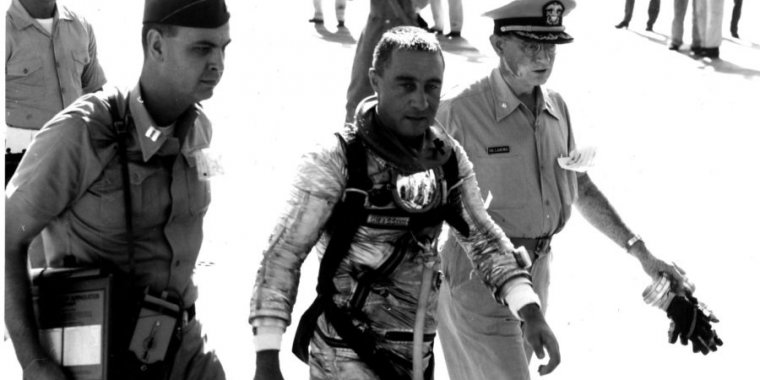
Gus Grissom
Virgil Ivan "Gus" Grissom was a United States Air Force pilot and a member of the Mercury Seven selected by National Aeronautics and Space Administration's as Project Mercury astronauts to be the first Americans in outer space. He was a Project Gemini and an Apollo program astronaut. As a member of the NASA Astronaut Corps, Grissom was the second American to fly in space. He was also the second American to fly in space twice, preceded only by Joe Walker with his sub-orbital X-15 flights. Grissom was a World War II and Korean War veteran, mechanical engineer, and USAF test pilot. He was a recipient of the Distinguished Flying Cross, the Air Medal with an oak leaf cluster, two NASA Distinguished Service Medals, and, posthumously, the Congressional Space Medal of Honor. During World War II, Grissom enlisted in the U.S. Army Air Forces as an aviation cadet.

60 years ago today, Liberty Bell 7 prematurely blew its hatch after splashing down in the Atlantic Ocean. For decades, a myth persisted (largely due to Tom Wolff's "The Right Stuff") that astronaut Gus Grissom panicked and blew the hatch early. Now, new evidence shows static electricity is to blame.



